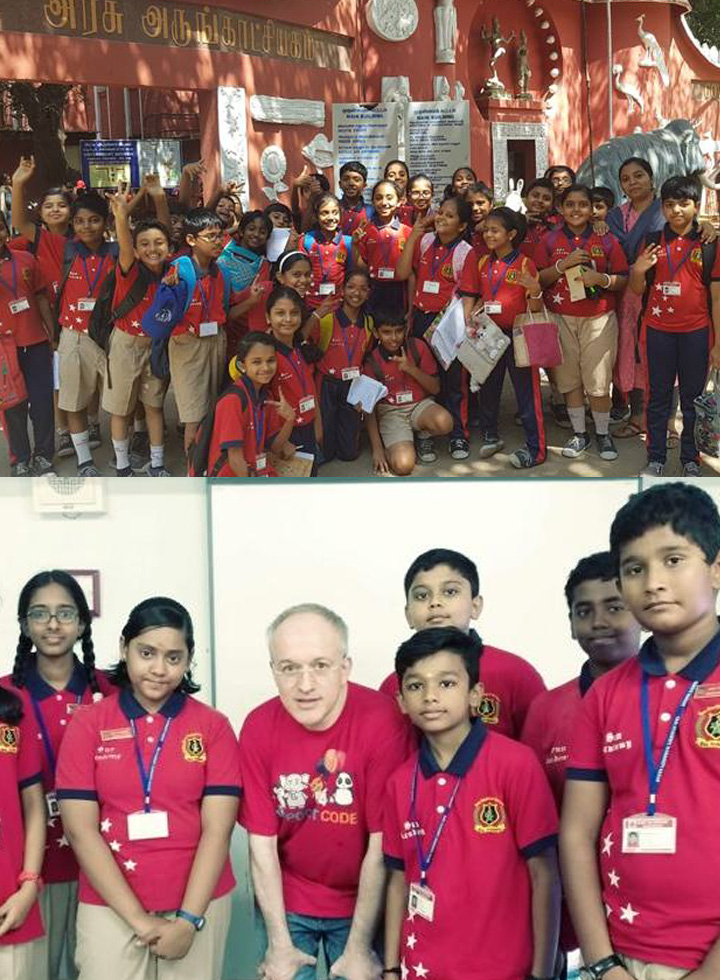Primary & Secondary
1. English (Language and Literature) - Classes I to X
2. Language
- Second Language : Classes I to VIII –Tamil/Hindi : Classes IX & X - Tamil/Hindi/Sanskrit
- Third Language : Classes I to VI - Tamil/Hindi : Classes VII to VIII - Tamil/Hindi/Sanskrit
- The language chosen cannot be changed at any point of time during the academic year.
3. Mathematics – Classes I to X
4. Environmental Science – Classes III to V Science – Classes VI to X
5. Social Studies – Classes III to V, Social Science - VI to X
6. Value education, General Knowledge – Classes I - III
- Value education, Aptitude – Classes IV & V
- Life skills & Aptitude – Classes VI to VIII
- Life skills – Classes IX to X
7. Computer Science – Classes I to X
8. Health and Physical Education – Classess I - X
9. Work Education – Classess VI - X
10. Art Education – Classess I – X

We offer a broad and balanced curriculum with the objective of providing holistic education through a structured schooling program.
The focus is on:
- Developing strong fundamentals
- Good physical development and team spirit through sports
- Life skills – Classes IX to X
Broad intellectual development through performing arts
- Inculcating good moral values rooted in Indian culture along with a commitment to Community Service
Our aim is to establish a strong foundation in each student for a future
Global career/ education by blending the traditional 3R’s Reading, Writing and Arithmetics with 4C skills
- Critical thinking and problem solving
- Communication
- Creativity
- Collaboration
which are required for success in the 21st century.
We do this by adopting the modern methods of teaching such as use of LCD, Audio-Visual, Story Method, Exploration and Research, Group Discussions (Debate) to make learning effective and an enjoyable experience.

